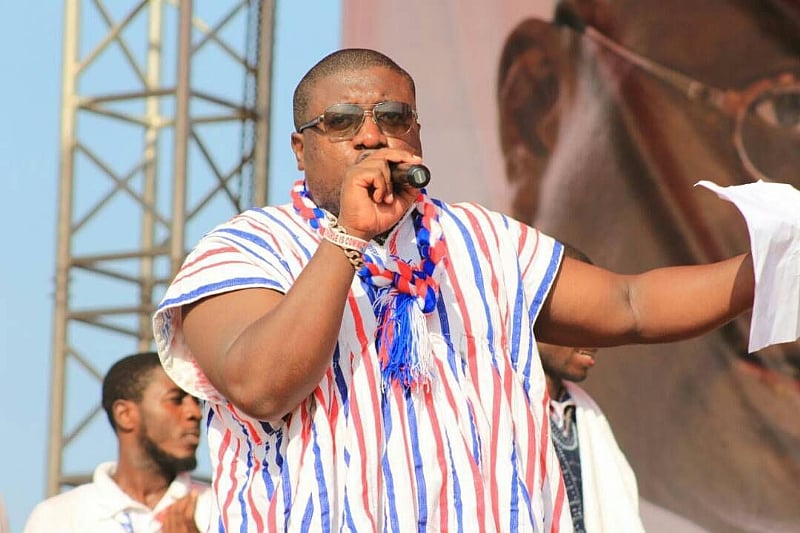The controversy surrounding Sammy Gyamfi, the Acting CEO of Ghana’s Gold Board, and his gifting of US dollar notes to self-proclaimed evangelist Nana Agradaa has ignited a firestorm of criticism and calls for accountability. Henry Nana Boakye, National Organizer of the ruling New Patriotic Party (NPP), has publicly challenged Gyamfi to disclose the source of the funds, arguing that his failure to do so casts a shadow of suspicion over the money and raises concerns about potential illegality. The incident, captured in a widely circulated video, shows Gyamfi dispensing the dollar bills from his luxury vehicle to Agradaa, a controversial figure known for her flamboyant displays of wealth and questionable spiritual practices. This act, according to Nana B, not only contravenes Ghana’s Anti-Money Laundering Act but also undermines the recently launched code of conduct for presidential appointees, raising questions about the government’s commitment to ethical governance.
The core of the controversy lies in the opacity surrounding the source of the dollar notes. Nana B contends that Gyamfi, having not yet received his salary since his appointment to the Gold Board, lacks a legitimate explanation for possessing such a substantial amount of foreign currency. This raises the specter of illicit activities and casts doubt on the integrity of Gyamfi’s financial dealings. The NPP organizer insists that, in the absence of a credible explanation, the money should be considered proceeds of unlawful or criminal activity, as stipulated by Ghana’s Anti-Money Laundering Act. He further argues that President John Mahama’s inaction on the matter would render the recently introduced code of conduct meaningless, signaling a lack of commitment to combating corruption and upholding ethical standards within the government.
The incident has sparked widespread condemnation from various quarters, including the Minority Caucus in Parliament and anti-corruption advocacy groups. These groups have called for Gyamfi’s immediate suspension pending a thorough investigation into the source of the funds and the circumstances surrounding the gift. They argue that such a display of opulence, particularly by a public official, raises serious ethical questions and undermines public trust in the government. The calls for accountability emphasize the need for transparency and integrity in public service and the importance of holding officials responsible for their actions.
The pressure on the government to address this controversy continues to mount. Critics argue that the incident exposes a potential weakness in the implementation of the newly established code of conduct. They contend that if President Mahama fails to take decisive action against Gyamfi, it will set a dangerous precedent, signaling that the code is merely a cosmetic measure and not a genuine commitment to ethical governance. This could further erode public trust and embolden other officials to engage in similar questionable practices.
The controversy surrounding Sammy Gyamfi and Nana Agradaa highlights the ongoing challenges Ghana faces in combating corruption and promoting good governance. The incident underscores the need for robust enforcement of anti-corruption laws and regulations, as well as the importance of fostering a culture of transparency and accountability within the public sector. The public’s demand for answers and the pressure on the government to take action reflects a growing intolerance for corruption and a desire for greater integrity in public life.
The unfolding events surrounding this controversy will undoubtedly have significant implications for Ghana’s political landscape. The government’s response, or lack thereof, will be closely scrutinized by the public and civil society organizations, as well as international observers. The outcome will serve as a litmus test for the government’s commitment to fighting corruption and upholding the principles of good governance. It remains to be seen whether the incident will lead to meaningful reforms and a strengthening of anti-corruption mechanisms or whether it will simply become another example of unaddressed allegations and impunity.














